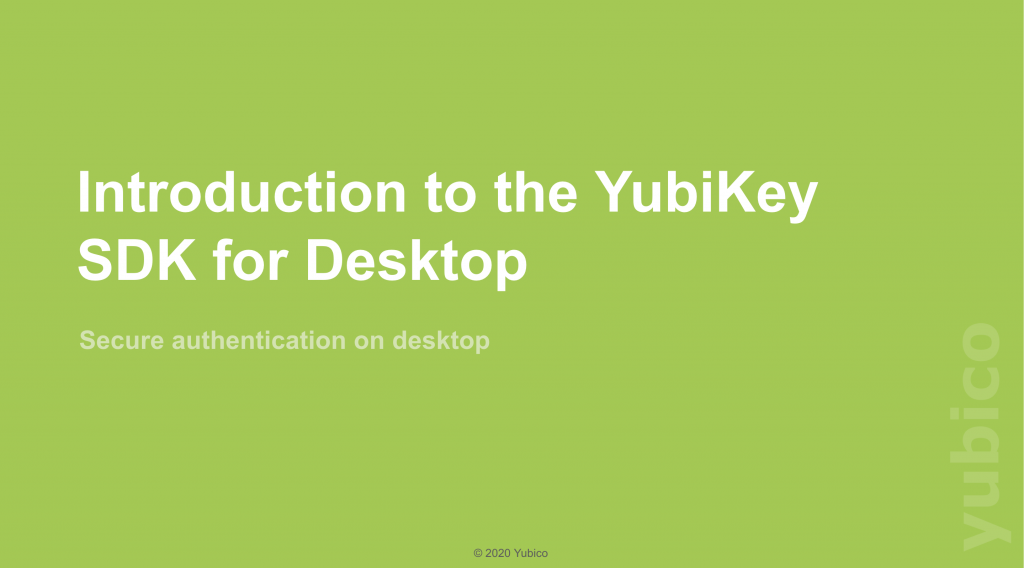Software Development Toolkits (SDKs)
Access free software and tools that help you integrate YubiKey and YubiHSM capabilities with your applications and services.

Yubico’s SDK offerings deliver rapid integration of
hardware-based strong authentication
YubiKey SDKs
Yubico has developed a range of mobile SDKs, such as for iOS and Android, and also desktop SDKs to enable developers to rapidly integrate hardware security into their apps and services, and deliver a high level of security on the range of devices, apps and services users love.

YubiHSM SDKs
The YubiHSM2 SDK contains a set of tools and interfaces to manage the YubiHSM 2 and YubiHSM 2 FIPS hardware. Microsoft’s KSP and PKCS#11 modules are included in this SDK as well.
How it works
Yubico’s range of SDKs equip developers with the tools needed to quickly and efficiently integrate hardware-based strong authentication support into the apps that are being built. Develop apps that users love and provide a seamless and consistent login experience for customers and employees, regardless of their device.
What our customers and partners are saying!

“We’re excited to partner with Yubico to bring YubiKey support to Brave for iOS. Yubico is the leading provider of hardware authentication security keys — devices which protect logins to online accounts from phishing, man-in-the-middle, and other threats of account takeover.”

“By integrating directly with the Yubico SDK, Allscripts is improving the multi-factor authentication (MFA) experience that is needed to comply with the electronic prescription of a controlled substance (EPCS).”



